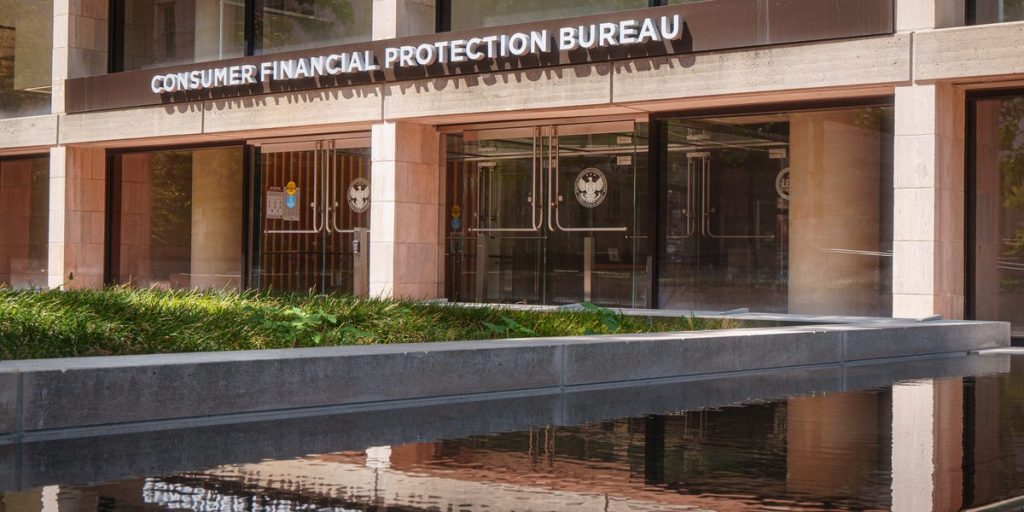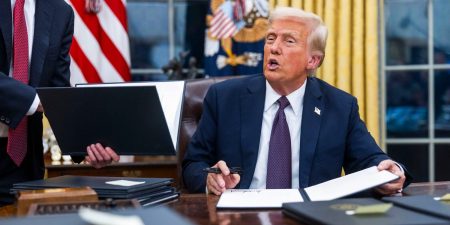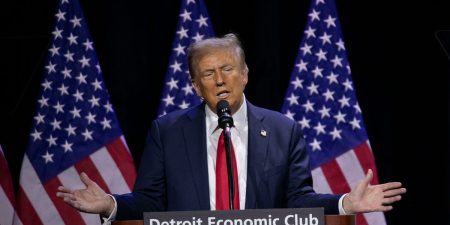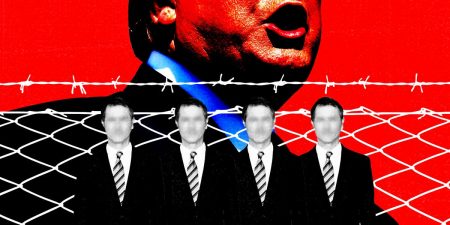Trump’s Treasury Secretary Takes Charge of the CFPB, Halting Key Consumer Protection Efforts
In a significant shift in the federal government’s approach to consumer protection, Treasury Secretary Scott Bessent has taken over as the acting director of the Consumer Financial Protection Bureau (CFPB). This move comes after President Donald Trump fired the previous director, Rohit Chopra. Under Bessent’s leadership, the CFPB has been ordered to halt much of its work, including enforcement actions and investigations. This decision has put several critical consumer protection initiatives in limbo, such as capping overdraft fees and cracking down on medical debt. The suspension of these rules has raised concerns among consumer advocates, who argue that these protections are essential for safeguarding Americans’ financial well-being. Additionally, Bessent has instructed the agency to stop issuing "public communications of any type," further intensifying the uncertainty surrounding the CFPB’s future.
The CFPB’s Role in Protecting Consumers and Its Recent Challenges
The Consumer Financial Protection Bureau was established in 2011 as part of the Dodd-Frank Act, aimed at preventing another financial crisis like the Great Recession. The agency is tasked with protecting Americans from abusive practices by financial institutions, ensuring that consumers are treated fairly, and preventing predatory lending practices. Over the years, the CFPB has taken significant actions to hold financial institutions accountable, resulting in billions of dollars being returned to consumers. For instance, the agency recently filed a lawsuit against Capitol One, accusing the bank of illegally charging customers over $2 billion in interest. The CFPB has also played a crucial role in protecting student-loan borrowers, including a recent case where it returned $100 million to borrowers who were serviced by private lender Navient.
Despite its successes, the CFPB has faced persistent attacks from critics, particularly Republican lawmakers, who argue that the agency oversteps its authority and should not exist. Recently, GOP Rep. Keith Self introduced legislation to eliminate the CFPB’s funding, claiming that the agency has "long operated as an unaccountable and burdensome agency that has stifled economic growth through regulatory overreach." These critics argue that the CFPB’s funding structure, which comes from the Federal Reserve rather than Congress’ annual appropriations process, makes it unaccountable to the public.
The Implications of Halting the CFPB’s Work
The halt on the CFPB’s work has significant implications for consumers, particularly those who are most vulnerable to financial exploitation. For example, the suspension of rules to cap overdraft fees and remove medical debt from credit reports could have a direct impact on Americans’ pocketbooks. Adam Rust, director of financial services at the nonprofit Consumer Federation of America, explained that these pauses "has real ramifications for people’s pocketbooks" and are "not some abstract regulatory debate." While states can still conduct their own investigations into potential consumer protection violations, Rust noted that halting the CFPB’s work "does take a big cop off the beat," leaving consumers with fewer protections against predatory practices.
The CFPB’s recent actions against discriminatory lending practices and errors in credit reporting further highlight the importance of its role in safeguarding consumers. For instance, the agency recently took action against a mortgage lender accused of discriminatory lending practices and sued Experian for reporting errors. These efforts demonstrate the CFPB’s commitment to ensuring that financial institutions operate fairly and transparently. However, with the agency’s work currently on hold, consumers may be left without the protections they need to navigate the complex financial landscape.
The Future of the CFPB Under Trump’s Leadership
As the CFPB’s work remains paused, questions about its future loom large. Treasury Secretary Scott Bessent has expressed his commitment to advancing President Trump’s agenda to lower costs for the American people and accelerate economic growth. However, it remains unclear how this will be achieved, given the agency’s current state of limbo. The CFPB and the Treasury Department have not yet responded to requests for comment on any potential plans for the agency’s future.
Meanwhile, critics like Elon Musk have celebrated the CFPB’s pause in operations, with Musk tweeting "CFPB RIP" on X. This sentiment reflects a broader push by some to reduce government oversight of financial institutions, arguing that such regulations stifle economic growth. However, consumer advocates argue that the CFPB’s work is essential for preventing another financial crisis and protecting Americans from scams and predatory practices. As the debate over the CFPB’s future continues, one thing is clear: the stakes are high for consumers who rely on the agency’s protections.
The Broader Impact of the CFPB’s Work and Its Ongoing Challenges
The CFPB’s work has had a tangible impact on consumers, with the agency distributing over $21 billion in monetary compensation and canceled debts back to consumers. Additionally, the agency has collected over $5 billion in civil money penalties as a result of violations of federal consumer protection laws. These figures demonstrate the critical role the CFPB plays in holding financial institutions accountable and ensuring that consumers are treated fairly.
Nevertheless, the agency continues to face challenges, particularly from critics who argue that its structure and funding make it unaccountable. The CFPB’s funding comes from the Federal Reserve, which is independent of Congress, leading some to argue that the agency operates without sufficient oversight. American Banking Association President Rob Nichols has praised Bessent’s takeover of the CFPB, urging him to "begin reversing the damage caused by these misguided regulatory actions." These comments reflect a broader push by some in the financial industry to roll back regulations and reduce government oversight.
Conclusion: What’s Next for the CFPB and Consumer Protection?
As the CFPB’s work remains on hold, the future of consumer protection in the United States hangs in the balance. While some argue that reducing government oversight will stimulate economic growth, others warn that this could leave consumers vulnerable to exploitation. The CFPB’s track record of returning billions of dollars to consumers and holding financial institutions accountable demonstrates the importance of its role in safeguarding Americans’ financial well-being.
Ultimately, the debate over the CFPB’s future reflects broader tensions between consumer protection and deregulation. As the agency navigates this uncertain landscape, it remains to be seen whether it will continue to play a vital role in protecting consumers or whether its efforts will be scaled back in favor of a more hands-off approach to financial regulation. One thing is clear: the consequences of these decisions will have a direct impact on the financial lives of millions of Americans.












